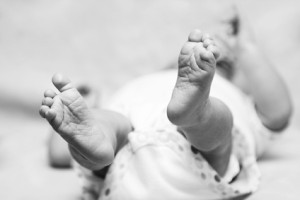- Calls to this hotline are currently being directed to Within Health, Fay or Eating Disorder Solutions
- Representatives are standing by 24/7 to help answer your questions
- All calls are confidential and HIPAA compliant
- There is no obligation or cost to call
- Eating Disorder Hope does not receive any commissions or fees dependent upon which provider you select
- Additional treatment providers are located on our directory or samhsa.gov
Pregnancy and Eating Disorders: Can Research Identify Risks to the Baby?
Contributor: Crystal Karges, MS, RDN, IBCLC, Special Projects Coordinator at Eating Disorder Hope/Addiction Hope
 Eating Disorders are complex psychiatric diseases that can impact individuals at various stages of their life. The groups of people that may susceptible to developing an eating disorder include females and males alike in adolescents, middle-aged adults, and elderly.
Eating Disorders are complex psychiatric diseases that can impact individuals at various stages of their life. The groups of people that may susceptible to developing an eating disorder include females and males alike in adolescents, middle-aged adults, and elderly.
Certain life events or transitions may trigger the development of an eating disorder in a person who may already be biologically predisposed to having this illness. Perhaps one of the most intense transition periods for women is the time of pregnancy and childbirth.
The Intense Emotions of Motherhood
The process of becoming a mother is a joyous occasion on several levels, but this transition also brings about many other intense emotions. The responsibility of caring for a child can be overwhelming at times and bring with it a host of other issues and changes, physically, mentally, and emotionally.
The time period of pregnancy is an especially vulnerable time for both mother and developing baby, as the choices a mother makes during her pregnancy will directly impact the life inside her.
The Clash of Pregnancy and an Eating Disorder
 Pregnancy can be a tricky time for a mother who may be struggling with an eating disorder, in recovery from an eating disorder or biologically predisposed to developing this illness. For some women, pregnancy is a motivating time to stick to treatment for eating disorder recovery more diligently then ever before.
Pregnancy can be a tricky time for a mother who may be struggling with an eating disorder, in recovery from an eating disorder or biologically predisposed to developing this illness. For some women, pregnancy is a motivating time to stick to treatment for eating disorder recovery more diligently then ever before.
Other women may find that they gravitate more towards their eating disorder during a time of many changes and transitions. Some women might feel overwhelmed by the way their body is transforming or emotionally detached from the life within them. Whatever the scenario may be, women who may be pregnant are not immune against these powerful disorders.
Getting Treatment Immediately
Seeking intervention and treatment as early as possible into a pregnancy is especially important for a woman and her baby. Research has observed the consequences that may arise if a women persists in eating disorder behaviors in the duration of her pregnancy. While the evidence is limited, it is helpful to understand the impact of eating disorders during pregnancy.
One study that examined women with bulimia, anorexia and both disorders found that women with bulimia were significantly more likely to have a history of miscarriage, while those with anorexia had an increased chance of delivering smaller babies for gestation compared with the general population1.
The Effects of an Eating Disorder on a Pregnancy
 Another study of women with a history of anorexia, bulimia, and atypical eating disorders found that women had a higher rate of low birth weight babies, babies with microcephaly, premature labor (especially if the mother’s body mass index was <20), growth restriction, miscarriage, and small for gestational age babies1.
Another study of women with a history of anorexia, bulimia, and atypical eating disorders found that women had a higher rate of low birth weight babies, babies with microcephaly, premature labor (especially if the mother’s body mass index was <20), growth restriction, miscarriage, and small for gestational age babies1.
The effects of eating disorders during pregnancy can also increase a mother’s chances of developing postpartum depression after delivering her baby and decrease the overall chances that she will breastfeed her baby. Because of the problematic nature of eating disorders during pregnancy to both mother and baby, increasing awareness is important for intervention and treatment.
When an Eating Disorder Isn’t Discovered
Research has also shown that eating disorders commonly go undetected by general practitioners, with only about 10 percent of women being identified and referred for treatment1. Increased awareness of practitioners, particularly obstetric physicians who routinely complete prenatal exams, may help with early identification and referral to treatment specialists. Women with active eating disorders during pregnancy should be referred to obstetricians who specialize in the management of high risks pregnancies.
If you are a woman who is struggling with an eating disorder during your pregnancy, know that there is hope for you and your baby. Reaching out for the appropriate help you need can improve the outcomes of your pregnancy and prepare you to bring a beautiful, healthy child into the world.
Community Discussion – Share your thoughts here!
After reading some of the research on pregnancy and eating disorders, what are your thoughts? How can early intervention help a woman who may be pregnant and struggling with an eating disorder recover and have a healthy pregnancy and baby? What resources might you recommend for a pregnant woman who has an eating disorder?
References:
- Ward, Veronica Bridget. “Eating Disorders in Pregnancy.” BMJ : British Medical Journal 336.7635 (2008): 93–96. PMC. Web. 17 July 2015.
Last Updated & Reviewed By: Jacquelyn Ekern, MS, LPC on July 31st, 2015
Published on EatingDisorderHope.com

